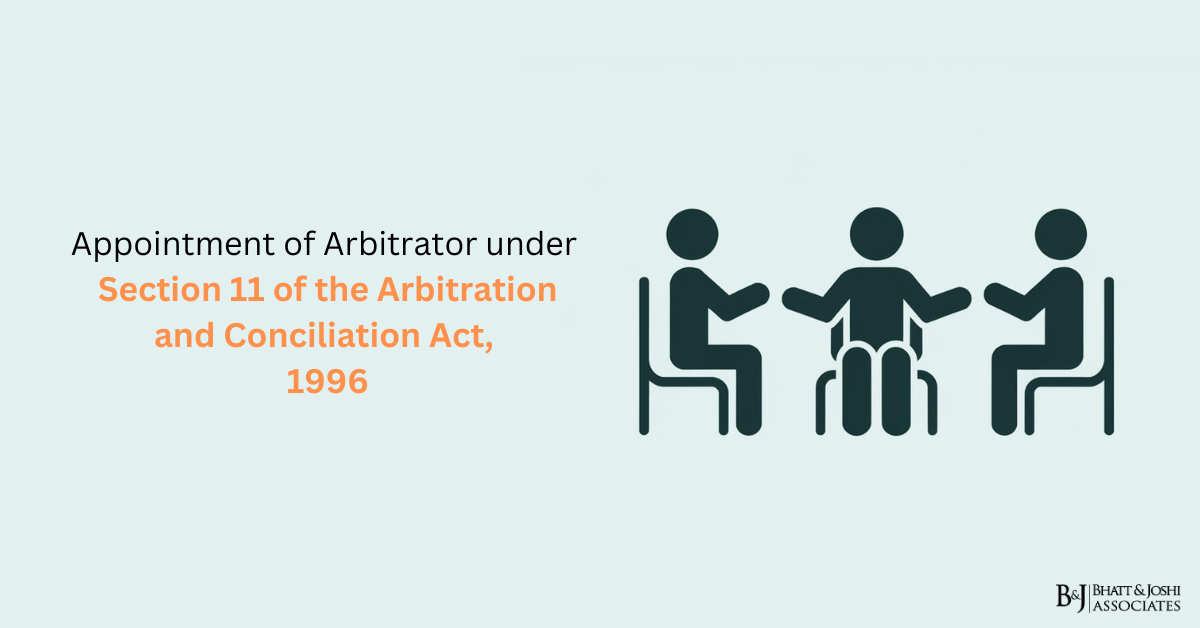
Introduction
Section 11 of the Arbitration and Conciliation Act, 1996 (the “Act”) provides for the appointment of arbitrators. It outlines the procedure for the appointment of arbitrators and the role of the court in this process.
Provisions under Section 11 of the Arbitration and Conciliation Act
Under Section 11, parties are free to agree on a procedure for appointing the arbitrator(s). In the absence of such an agreement:
- In an arbitration with three arbitrators, each party appoints one arbitrator, and the two appointed arbitrators appoint the third arbitrator who acts as the presiding arbitrator.
- In an arbitration with a sole arbitrator, if the parties are unable to agree on the arbitrator, he or she shall be appointed by the Supreme Court or any person or institution designated by it.
Amendments to Section 11 of the Arbitration and Conciliation Act
Section 11 has undergone several amendments over the years to reduce judicial intervention in arbitration and make India an arbitration-friendly jurisdiction123.
2015 Amendment
The 2015 amendment restricted the scope of Section 11 to a prima facie determination of whether an arbitration agreement exists1. It made it peremptory in nature, requiring the concerned judicial authority to refer the dispute to arbitration1.
2019 Amendment
The 2019 Amendment Act substantially amended Section 111. The amended Section 11 entrusts the appointment of the arbitrator to arbitral institutions designated by the Supreme Court1. This amendment marked India’s shift towards institutional arbitration.
Important Judgments
Supreme Court Judgments
In DLF Home Developers Limited v. Rajapura Homes Private Limited & Anr and DLF Home Developers Limited v. Begur OMR Homes Private Limited & Anr, a two-judge bench of the Supreme Court expanded the scope of judicial inquiry under Section 111. The court clarified that courts are not expected to act mechanically merely to deliver a purported dispute raised by an applicant at the doors of the chosen Arbitrator.
In N.N. Global Mercantile Pvt. Ltd v. Indo Unique Flame Ltd, The Supreme Court ruled that an unstamped instrument without the required stamp duty is not legally enforceable. If such an instrument with an arbitration clause is presented in a Section 11 petition under the A&C Act, the Court must seize it.
High Court Judgments
The High Court of Delhi held that the power exercised by the High Court under Section 11 of the A&C Act is not an administrative but a judicial function. Therefore, the High Court can review an order passed under Section 11 if it suffers from an evident factual error based on an incorrect statement made by counsel.
Conclusion
The amendments to Section 11 and various judgments have aimed to reduce judicial intervention in arbitration and make India an arbitration-friendly jurisdiction. The shift towards institutional arbitration and emphasis on party autonomy reflect India’s commitment to creating a robust framework for dispute resolution through arbitration.












